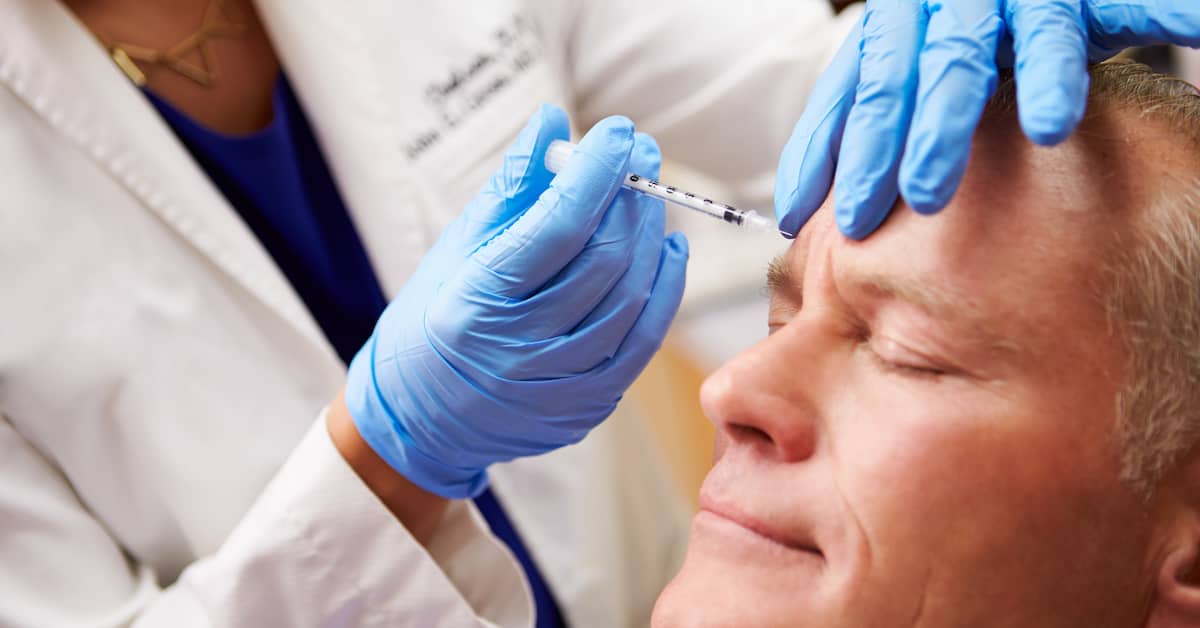
What if a simple cosmetic treatment could do more than smooth wrinkles? Imagine a procedure that not only refreshes your appearance but also lifts your mood, reduces anxiety, and even helps regulate impulsive behavior.
Botox, best known for its ability to erase frown lines, is now surprising scientists with its mental health benefits. Recent studies suggest it’s not just about vanity—this injectable may hold the key to relieving depression, anxiety, and more by altering brain activity. Intrigued? Let’s dive into the fascinating science behind Botox’s unexpected effects.
Key Takeaways
-
Mood Booster: Botox disrupts negative facial feedback loops, reducing symptoms of depression and anxiety, regardless of injection site.
-
Brain Function Improvement: Botox alters brain activity by calming the amygdala and enhancing prefrontal inhibitory control, which reduces impulsive behavior.
-
Beyond Cosmetics: Studies suggest Botox could offer alternative mental health treatments for conditions like anxiety, depression, and borderline personality disorder.
Beyond The Mirror: Botox's Unexpected Brain Benefits
What Is The Facial Feedback Hypothesis?
The facial feedback hypothesis is based on the idea that a facial expression not only expresses an emotion but that sensory feedback from the facial action influences the emotional experience. Studies to date bear this out… For example, a series of randomized placebo-controlled trials show Botox injections can reduce the symptoms of depression compared to saline injections. Here’s how it works: By injecting Botox into the glabellar - the area between the eyebrows where frown lines occur – you paralyze “grief muscles” that express negative emotions. Researchers believe that this disrupts signals from the face to the brain that maintain and reinforce these negative emotions. However, these studies are suspect because the procedure relaxes the facial muscles; this would be obvious to participants in the Botox group. Therefore, the studies can’t really be described as placebo-controlled and could have produced biased results. More recently researchers from the U.S. and Germany joined forces to try a different approach. They intended to compare patients with medical conditions where Botox was used to those who had the same conditions where more traditional treatments were used and then assess future reports of depression among the whole cohort. The results were encouraging…Reduces Depression and Slashes Anxiety Attacks
To do this, the research team analyzed a database of 40,000 people who had received Botox at various injection sites on the body for seven different medical conditions, including cosmetic issues, joint and muscle pain, as well as overactive bladder, and spasms in the upper and lower limbs. They found patients receiving Botox reported significantly less depression compared to patients undergoing different treatments for the same conditions. They concluded that not only could Botox be used to treat depression, confirming previous reports, but this treatment could also protect against the development of the condition. The study demonstrates that the antidepressant effect of Botox doesn’t depend on the site of the injection or expectations of an improved appearance. The researchers believe the facial feedback hypothesis is still valid but “may act through a more complex mechanism.” The researchers replicated the study again using the same database to analyze the effects of Botox on anxiety. They found anxiety disorders occurred between 22 and 72 percent less often in patients using Botox compared to those treated with other therapies.Lessens Impulsive Behavior
In the most recent study, published in the journal Scientific Reports in August, a large research group from Germany scanned the brain to see what changes occur with a Botox procedure. This time they tested Botox on 45 women with borderline personality disorder (BPD), where sufferers experience an excess of negative emotions like anger and fear. The researchers gave the women either a Botox injection in the glabellar, the area between your eyebrows just above your nose, and interviewed them about their emotional states before and after the treatments.Summary
Botox, widely recognized for its cosmetic benefits, is emerging as a promising tool for improving mental health. Researchers believe its ability to paralyze specific facial muscles supports the facial feedback hypothesis, which suggests that facial expressions influence emotions. Clinical trials reveal that Botox can significantly reduce symptoms of depression, anxiety, and even impulsive behaviors in patients with conditions like borderline personality disorder. Studies also show Botox alters brain activity, including calming the amygdala and boosting the prefrontal cortex’s inhibitory control. These findings open the door to Botox as a potential treatment for mental health conditions that don’t respond to traditional therapies.
Frequently Asked Questions
How does Botox improve mood?
Botox interrupts negative emotional feedback from facial muscles, which can reduce symptoms of depression and anxiety.Does Botox’s mental health effect depend on where it’s injected?
No, studies show Botox reduces depression and anxiety regardless of the injection site.What is the facial feedback hypothesis?
This theory suggests facial expressions influence emotional experiences, and Botox disrupts this loop to improve mood.Can Botox help with impulsive behavior?
Yes, studies show Botox reduces impulsive behavior by altering brain activity in the prefrontal cortex and amygdala.Is Botox a replacement for traditional mental health treatments?
Botox may complement or provide alternatives for those who don’t respond to antidepressants or therapy, but more research is needed.- Makunts T, Wollmer MA, Abagyan R. Postmarketing safety surveillance data reveals antidepressant effects of botulinum toxin across various indications and injection sites. Sci Rep. 2020 Jul 30;10(1):12851. doi: 10.1038/s41598-020-69773-7. PMID: 32732918; PMCID: PMC7393507.
- Wollmer MA, Makunts T, Krüger THC, Abagyan R. Postmarketing safety surveillance data reveals protective effects of botulinum toxin injections against incident anxiety. Sci Rep. 2021 Dec 21;11(1):24173. doi: 10.1038/s41598-021-03713-x. PMID: 34934096; PMCID: PMC8692576.
- Semmelweis University. Botox Not Only Smoothes Wrinkles But Also The Soul First Imaging Evidence In Patients Showing It Modifies Brain Activity.
- Kruger, T.H.C., Schulze, J., Bechinie, A. et al. Neuronal effects of glabellar botulinum toxin injections using a valenced inhibition task in borderline personality disorder. Sci Rep 12, 14197 (2022). https://doi.org/10.1038/s41598-022-17509-0
